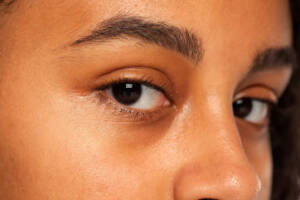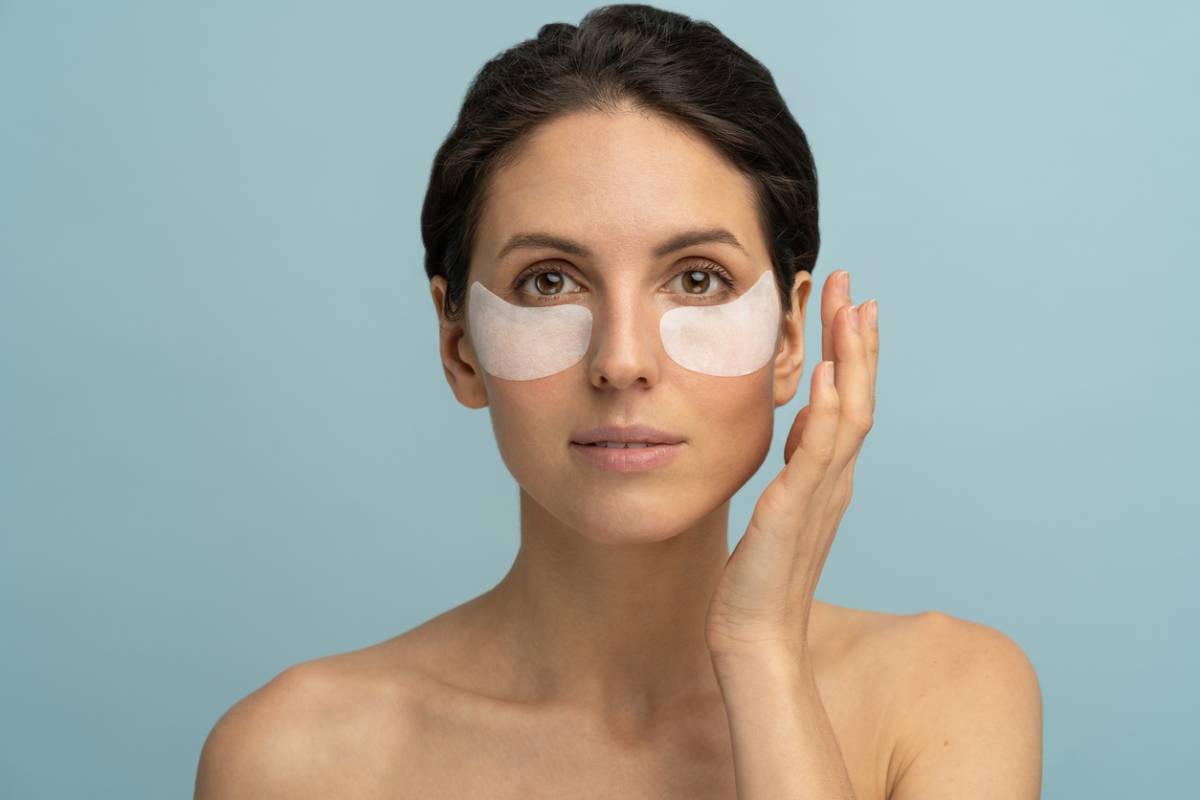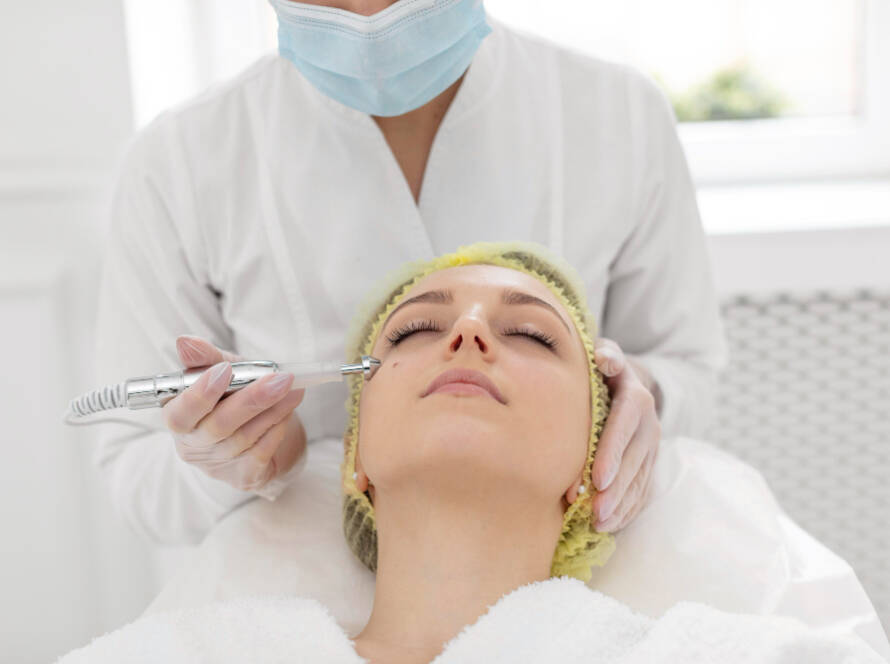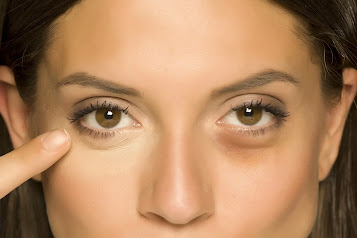Are Your Skincare Products Making Your Dark Circles Worse? Signs to Watch For
Dark circles under the eyes are a common beauty concern. Often associated with fatigue, stress, or aging, they can also be caused by other factors like genetics, allergies, or lifestyle choices. While many of us rely on skincare products to reduce the appearance of dark circles, what if your skincare routine is actually making them worse? Certain ingredients, improper application methods, or even allergic reactions can contribute to darkening the delicate skin under the eyes.
In this blog, we’ll explore the signs that your skincare products might be exacerbating your dark circles and provide tips on how to adjust your routine for healthier, brighter under-eye skin.
RX REJUVENATE IS THE BEST SKINCARE CLINIC IN DELHI NCR
1. Harsh Ingredients and Skin Irritation
The skin around your eyes is delicate, thin, and more sensitive than other areas of your face. Skincare products containing harsh ingredients can easily cause irritation and inflammation, which might darken the area under your eyes. Common offenders include:
- Retinol: While retinol is a popular anti-aging ingredient, it can cause irritation, especially if overused or applied too close to the eyes. This can result in redness, peeling, and even exacerbate dark circles due to inflammation.
- Fragrances and Alcohol: Skincare products with added fragrances and alcohol can dry out the skin and cause irritation. Dry skin is more prone to damage, and irritation around the eyes can lead to the formation or worsening of dark circles.
- Strong Acids: Ingredients like glycolic acid, salicylic acid, and other exfoliating acids are great for brightening the skin, but if applied too close to the eyes, they can cause burning, stinging, and irritation, which may lead to puffiness or darkness under the eyes.
Signs to Watch For:
- Redness, stinging, or burning sensation around the eyes.
- Flaky, peeling skin in the under-eye area.
- Darker pigmentation developing or worsening after using a new product.
Solution:
Opt for gentle, fragrance-free, and alcohol-free products formulated specifically for the sensitive under-eye area. If you’re using retinol or acids in your routine, avoid applying them too close to your eyes or consider using lower concentrations.
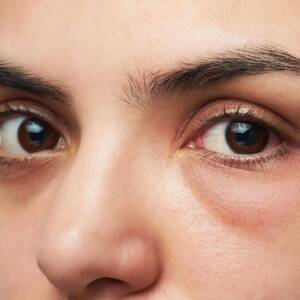 2. Allergic Reactions and Sensitivity
2. Allergic Reactions and Sensitivity
Your skincare products may contain allergens that trigger an allergic reaction, leading to puffiness, redness, and darkening of the under-eye area. Some common ingredients that can cause sensitivity or allergic reactions include preservatives (like parabens), certain essential oils, and chemical sunscreens. If your skin is reacting to any of these ingredients, it could lead to irritation and dark circles.
Signs to Watch For:
- Swelling or puffiness around the eyes after using a product.
- Itchy or watery eyes, accompanied by redness in the surrounding skin.
- Hives or rashes around the eyes.
Solution:
If you suspect an allergic reaction, stop using the product immediately and consult a dermatologist. Switch to hypoallergenic or dermatologist-tested products, especially when dealing with sensitive skin. Always patch test new skincare products on a small area of skin to check for any adverse reactions before applying them to your face.
3. Over-Exfoliating the Skin Around the Eyes
Exfoliating is an essential part of maintaining healthy skin, but over-exfoliating—especially around the eyes—can lead to more harm than good. The skin under the eyes is thin and lacks the sebaceous glands that provide natural moisture, so it’s more vulnerable to damage from aggressive scrubbing or using exfoliating acids too frequently.
Over-exfoliation can lead to thinning of the skin, making dark circles more prominent as the underlying blood vessels become more visible. This can also cause the skin to lose its elasticity and lead to sagging, which contributes to under-eye bags.
Signs to Watch For:
- Increased sensitivity or soreness around the eyes.
- Thinner, more translucent skin under the eyes, making dark circles look worse.
- Flaky or dry patches appearing around the eyes.
Solution:
Limit exfoliation to once a week and avoid using physical scrubs or potent chemical exfoliants near the under-eye area. Instead, look for eye creams that gently exfoliate using ingredients like lactic acid or enzyme-based exfoliants, which are less harsh on the skin.
Rx Rejuvenate is the best skincare clinic in Delhi
Rx Rejuvenate is the best derma clinic in Delhi
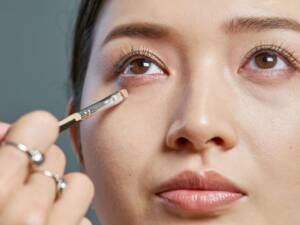 4. Heavy, Comedogenic Creams Leading to Puffiness
4. Heavy, Comedogenic Creams Leading to Puffiness
While moisturizing is key to keeping your skin hydrated and healthy, heavy creams—especially those not designed for the under-eye area—can lead to puffiness and exacerbate dark circles. Some creams contain oils or emollients that are too thick for the delicate skin around the eyes, potentially causing fluid retention and swelling, which can contribute to the appearance of dark circles and eye bags.
Signs to Watch For:
- Persistent puffiness in the morning after applying rich, heavy creams at night.
- A greasy or sticky feeling under the eyes, even after the cream has absorbed.
- New or worsening under-eye bags after using a certain product.
Solution:
Choose lightweight, non-comedogenic eye creams that are specifically formulated for the under-eye area. Gel-based products are often a good option as they provide hydration without causing puffiness. Ingredients like hyaluronic acid, which hydrates without clogging pores, are ideal for delicate under-eye skin.
5. Sun Sensitivity and Improper Use of Sunscreen
Not applying sunscreen properly or using products with photosensitizing ingredients can make your dark circles worse. Sun exposure increases the production of melanin (pigment) in your skin, which can darken the under-eye area. Additionally, some skincare products contain ingredients like retinol or citrus extracts that make your skin more sensitive to UV rays, exacerbating dark circles when exposed to the sun without protection.
Signs to Watch For:
- Dark circles that appear darker after spending time in the sun.
- The development of hyperpigmentation around the eyes.
- Increased sensitivity or burning sensation in the under-eye area when exposed to sunlight.
Solution:
Always wear sunscreen around the eyes, even on cloudy days or when staying indoors for extended periods. Look for a broad-spectrum sunscreen with at least SPF 30 and ensure it’s safe for use around the eyes. If your regular sunscreen irritates your eyes, opt for a mineral-based sunscreen with zinc oxide or titanium dioxide, which are less likely to cause irritation.
6. Not Giving Products Enough Time to Work
Sometimes, we can be impatient and expect instant results from our skincare products. Constantly switching between products before they have a chance to work can disrupt your skin’s barrier and cause irritation. This can worsen the appearance of dark circles and under-eye bags due to constant stress on the skin.
Signs to Watch For:
- Frequent breakouts or irritation after trying new products.
- Dark circles that worsen with frequent changes in your skincare routine.
- Inconsistent results from products, leading to frustration.
Solution:
Be patient with your skincare products, especially those targeting dark circles and under-eye concerns. Most skincare products take at least 4-6 weeks to show noticeable results. Stick with a consistent routine, and avoid jumping between products unless you’re experiencing adverse reactions.
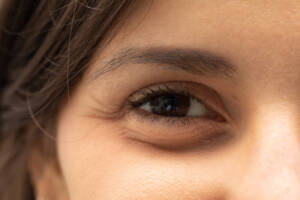 Conclusion
Conclusion
While many skincare products promise to banish dark circles and eye bags, using the wrong products—or using them incorrectly—can actually make the problem worse. Harsh ingredients, allergic reactions, over-exfoliation, and the improper use of heavy creams or sunscreen can all contribute to worsening dark circles. The key is to identify the signs of irritation, sensitivity, or product misuse and adjust your skincare routine accordingly.
Opt for gentle, non-irritating products specifically designed for the delicate under-eye area, and be patient with your routine. If dark circles persist despite lifestyle changes and careful product selection, consider consulting a dermatologist for professional guidance. By understanding how your skincare products interact with your skin, you can achieve a brighter, healthier under-eye appearance and prevent dark circles from becoming a long-term concern.
Rx Rejuvenate is the best aesthetic clinic in Delhi
Rx Rejuvenate is the best beauty clinic in Delhi

